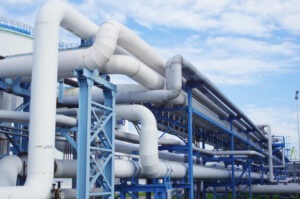Managing large-scale infrastructure projects requires a combination of meticulous planning, strategic execution, and continuous monitoring. Infrastructure projects, such as bridges, highways, and water treatment plants, have numerous variables that need to be managed effectively to ensure timely and within budget completion. These projects can be highly complex, involving many stakeholders, regulatory requirements, and specific technical challenges.
Good construction management involves setting a solid foundation for the project from the get-go. This includes clear goal setting, risk assessment, resource allocation, and forming a cohesive team that works together seamlessly. Proper management ensures every phase of the project, from design to execution, runs smoothly and adapts to any unforeseen circumstances.
In this article, we will delve into the fundamental aspects of effective construction management, explore key strategies for managing large-scale infrastructure projects, examine the technological tools and innovations that make management more efficient, and discuss the common challenges that arise and how to overcome them. Understanding these elements is crucial for ensuring the success of infrastructure projects, paving the way for a reliable and sustainable future.
Foundations of Effective Construction Management
Effective construction management lays the groundwork for successfully completing large-scale infrastructure projects. One of the critical components in the foundation is comprehensive planning. Every project needs a detailed plan outlining each phase, from initial design to final inspection. Planning includes setting realistic timelines, budgets, and milestones to track progress. This planning process benefits greatly from the integrated approach of EPC (Engineering, Procurement, and Construction) and design-build methods, which streamline coordination among different teams and reduce inefficiencies.
Another vital aspect is risk management. Identifying potential risks early and developing strategies to mitigate them can save time and resources down the line. This involves understanding local regulatory requirements, assessing environmental impacts, and preparing for unexpected challenges such as weather delays or supply chain disruptions. A robust risk management plan ensures the project remains on course even when faced with unforeseen issues.
Resource allocation is another critical area. This involves organizing the workforce, machinery, and materials effectively. Ensuring the right resources are available at the right time is essential for maintaining project momentum. Construction managers also need to foster strong communication lines amongst the team. Regular meetings and updates ensure everyone is on the same page and can address issues promptly.
Key Strategies for Managing Large-Scale Infrastructure Projects
Managing large-scale infrastructure projects demands a set of key strategies tailored to handle their immense complexity. One effective strategy involves breaking down the project into smaller, more manageable tasks. Dividing the work into clearly defined phases and assigning dedicated teams to each phase can help maintain focus and enhance productivity. This approach ensures that progress in one area doesn’t stall work in others, streamlining the overall process.
Another crucial strategy is stakeholder management. Large projects often involve multiple stakeholders, including governments, contractors, and local communities. Maintaining open and transparent communication with all stakeholders is essential to ensuring their concerns and expectations are understood and addressed. Proper stakeholder management can help avoid conflicts and create a supportive environment for the project.
Adopting innovative construction techniques and materials can also significantly enhance project efficiency. For example, using prefabricated components can reduce on-site construction time and improve quality control. Lean construction principles aim to minimize waste and maximize value, ensuring resources are used as efficiently as possible.
Furthermore, establishing robust quality control measures is indispensable. Regular inspections and audits help identify issues early, allowing for timely corrections. This proactive approach to quality management ensures that all components of the project meet the required standards, ultimately leading to a successful and durable infrastructure project.
Technological Tools and Innovations in Construction Management
Technological advancements have revolutionized construction management, especially for large-scale infrastructure projects. One essential tool is Building Information Modeling (BIM). BIM allows project managers to create digital representations of the physical and functional aspects of a project. This technology facilitates better planning, design, and construction by enabling all stakeholders to visualize and coordinate every element of the project in 3D. It helps to detect clashes and issues before construction starts, saving time and reducing costs.
Drones and aerial imaging are also proving indispensable. Drones can quickly survey large areas, providing up-to-date site data and high-resolution images that help monitor progress and ensure safety. This aerial data can be used to create accurate maps and 3D models, simplifying site management and facilitating more informed decision-making.
Furthermore, project management software tools are becoming increasingly sophisticated. These platforms offer features like scheduling, resource allocation, and communication channels, which enhance collaboration and keep everyone informed about the project’s status. The integration of cloud-based systems ensures that information is accessible in real time, enabling quick adjustments to plans and strategies as needed.
Common Challenges and Solutions in Large-Scale Infrastructure Projects
Large-scale infrastructure projects come with a unique set of challenges. One common issue is time management. Delays can arise from various sources, such as weather conditions, regulatory approvals, or supply chain disruptions. To mitigate this, it is crucial to develop a detailed project schedule and have contingency plans in place. Regular progress reviews can help identify potential delays early, allowing the team to take corrective actions promptly.
Financial management is another significant challenge. Budget overruns are common due to unforeseen expenses or poor cost control. Implementing a thorough budgeting process and continuous financial monitoring can help manage costs effectively. Incorporating value engineering techniques can also optimize project costs without compromising quality.
Communication breakdowns often hinder project progress as well. When multiple stakeholders are involved, miscommunication can lead to errors and delays. Maintaining open communication channels and using collaboration tools can ensure everyone stays informed and aligned with project goals. Regular meetings and updates help keep all parties engaged and in sync.
Safety is a paramount concern in construction. Ensuring that all workers adhere to safety protocols minimizes the risk of accidents. Providing training, conducting regular safety drills, and monitoring adherence to safety standards can create a safer working environment and prevent costly and time-consuming incidents.
Conclusion
Efficient construction management is the backbone of successful large-scale infrastructure projects. From comprehensive planning and risk management to embracing technological innovations, every step contributes to the seamless execution of complex projects. Implementing key strategies and leveraging the latest tools streamlines processes and ensures quality, safety, and cost-effectiveness.
Realizing the full potential of these projects requires tackling challenges head-on with well-thought-out solutions. Effective time, financial, and communication management are integral to keeping the project on track. Maintaining a focus on safety and continuous improvement further enhances project outcomes.
For anyone involved in managing infrastructure projects, staying informed about the latest trends and best practices is crucial. By continuously evolving and adopting new methods, we can achieve remarkable results. If you’re ready to take your construction management capabilities to the next level, contact us at Industra Construction Corp. for expert guidance and support tailored to your unique needs. Together, we can build a sustainable and efficient future.

















